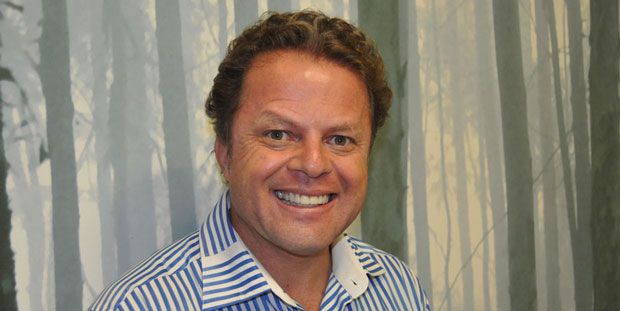AppChat founder John Holdsworth has fired back at Reunert and its subsidiary Nashua ECN, of which he is founder and former CEO, accusing the JSE-listed group of using a lawsuit against him and his new company as an attempt to “prevent fair competition and entrench itself in the market”.
He has also denied accusations that, by launching AppChat — which will provide mobile voice services — he is in breach of a restraint-of-trade agreement with his former employer.
Reunert, which bought ECN last year in a R172m deal, has accused Holdsworth of “corporate sabotage” and of poaching key talent from ECN and using his knowledge of ECN’s development plans to benefit AppChat unlawfully.
In a founding affidavit filed in the high court in Pretoria in March, Nashua ECN MD Andy Openshaw says the company is at an advanced stage of developing a mobile voice-over-Internet protocol (VoIP) product similar to the one he says Holdsworth plans to launch later this year. In the affidavit, Openshaw says ECN has been developing this product for the past 15 months and that Holdsworth is aware of these plans.
But Holdsworth has hit back hard, saying AppChat’s technology and business model is “fundamentally different” to ECN’s and denying he had prior knowledge of the company’s mobile VoIP product plans. “The mobile and fixed telecommunications markets have very different market structures, reflecting fundamental differences in the underlying technologies and cost structures and drivers,” Holdsworth says in a responding affidavit filed late last week.
In his answering affidavit, Holdsworth includes sworn statements from former Nashua Mobile and Nashua Group CEO Andy Baker (who resigned in October 2011) and from former ECN shareholder and director Jane Ashburner (who resigned in June 2011) that appear to corroborate his claim that he had no prior knowledge of ECN’s mobile VoIP development plans.
“When I went on so-called ‘gardening leave’ in June 2011, the sole and exclusive business of Nashua ECN was that of a fixed-line operator,” Holdsworth says. “There was no decision whatsoever to which I was a party (or of which I had any knowledge) by Nashua ECN to develop any VoIP application for mobile phones.”
Holdsworth says he “only became aware of those facts” after November 2011. “At no stage whatsoever while I was an employee of Nashua ECN was it brought to my attention that [the company] was even considering the possibility of developing a VoIP application for mobile phones.”
He denies he has breached his restraint or confidentiality undertakings “insofar as any of these undertakings may be valid and enforceable in law”.
“I further deny that either [AppChat or I] is engaged in any unlawful competition against the applicant,” he adds.
He concedes that while he was at ECN, a senior employee, Brynn Andrew, approached students at Wits University to develop a mobile VoIP app. But, he says, this was done “unilaterally” and without his or the company’s knowledge. “I only discovered it after November 2011 when I had already left the employ of ECN and ceased to be a director of ECN.”
He says that “at no stage” was he “privy to any of the information in regard to what the applicant refers to as ‘the process of developing a VoIP application for mobile phones’”.
He says further that he did not “keep what I was doing a secret and, in fact, I conveyed directly and factually to Openshaw what I intended doing and in broad terms why I believed (and still do believe) that I was not in breach of any restraint of confidentiality undertakings”.
Dispute over staff
In his founding affidavit, Openshaw accuses Holdsworth of poaching “critical employees in the Nashua ECN technical and other departments and have all been intimately involved in the new products that are currently under development”. He says Holdsworth had “effectively enticed away the entire development and technical team of Nashua ECN to place him[self] in a position to replicate the research and development that has been expended … in bringing these products to market”.
In his response, Holdsworth says ECN has “grossly” exaggerated the effect of losing the employees as it had “already restructured its operations, rehired former staff, redeployed current staff, hired new staff and outsourced work to third parties to ameliorate the impact of the resignations”.

He claims he also told ECN employees who asked to join AppChat that he was only comfortable discussing job opportunities with them in “broad terms”.
“I was not prepared to give any of them any special treatment and they would have to apply for a position with AppChat like any other member of the general public,” Holdsworth says. “I would not be in a position to make them formal job offers until I had received confirmation from my attorney that they … were not breaching any of their undertakings to [ECN].”
Holdsworth alleges that employees who had resigned from ECN were questioned intensely about where they were going. Insults were directed at them and pressure was put on them not to join AppChat, he says.
In the affidavit, he also questions ECN’s claims that he is attempting to steal the company’s intellectual property, saying most of its systems are based on open-source software that is governed by the General Public Licence (GPL), which requires any enhancements to the software to be made available freely to the open-source community for use by the general public.
“It is absurd for the applicant to be seeking to use this open-source technology or any derivative therefrom and to refer to it as confidential and proprietary,” Holdsworth says. “This is contrary to the very concept of open source, which is free, open and in the public domain.”
He adds that there is “not a shred” of ECN’s information — “let alone proprietary or confidential information” — that is “of any use whatsoever” to him in developing AppChat’s products. “The product is different. The technology is different. The market is different. Customers are different. It is quite simply ‘chalk and cheese’.”
Holdsworth says Reunert is “conducting itself as the proverbial bullyboy, using ECN, a fixed-line operator, as a proxy for one of its other group companies, Nashua Mobile”.
He says it is “clear” that ECN only took on mobile VoIP as a strategic initiative after his announcement about his future plans in a media interview on 24 October 2011.
“Nashua ECN’s mobile VoIP application is no more than an unstructured and unmanaged research and development exercise that has been hastily promoted to strategic importance by the applicant for ulterior motives,” he says.
“It is well known that [AppChat] will be a disruptive new entrant and its strategy is to significantly reduce the high cost of mobile tariffs in SA,” Holdsworth says.
“It is not inconceivable and is indeed likely that [this] strategy … could result in a price war between [AppChat] and the mobile network operators,” he says. “There is an extensive body of international experience that suggests that should this happen, mobile prices will fall, mobile traffic will increase, mobile service provider commissions will be reduced and mobile handset subsidies will be cut to the bone.”
He says it is therefore “not in the interests” of ECN or Reunert for AppChat to succeed. “Indeed, should [AppChat] succeed, [Reunert] could suffer serious financial consequences because of the impact on Nashua Mobile.”
Asked to comment on Holdsworth’s answering affidavit, Openshaw says ECN is studying the document and is preparing an answering affidavit which it must file to the high court by late next week. He says he will be in a better position to comment in the next few days but says he believes the company has a strong case.
The high court is expected to hear the matter towards the end of May. — (c) 2012 NewsCentral Media




